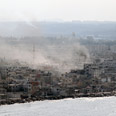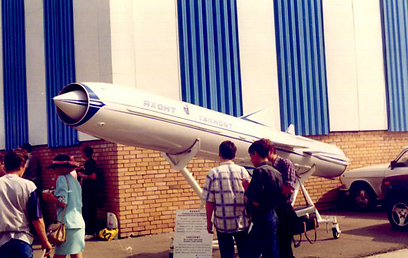
No comment was made by Israeli sources thus far.
Related stories:
- Syria naval base blast points to Israeli raid
- Ya'alon on Syria: We keep to red lines
- Mysterious explosion hits Assad munitions cache in Latakia
The sources added that Israel launched the July 5 strike in order to hit the Russian-made missiles, which Israel believed pose a threat to its forces. The officials spoke anonymously.

Long-range Yakhonts missle
Qassem Saadeddine, spokesman for the Free Syrian Army's Supreme Military Council, told Reuters last week, "it was not the FSA that targeted this; It is not an attack that was carried out by rebels.
"This attack was either by air raid or long-range missiles fired from boats in the Mediterranean," he said.
Rebels described huge blasts – the ferocity of which, they said, was beyond the firepower available to them but consistent with that of a modern military like Israel's.
Israeli officials have made clear that if advanced weaponry is transferred from President Bashar Assad's army to Iranian-backed Hezbollah fighters in Lebanon, it would include the long-range Yakhonts, which could help Hezbollah repel Israel's navy and endanger its offshore gas rigs.
In May, Israel and its US ally complained about Moscow sending the missiles to Syria. Israel said they would likely end up with Hezbollah. The Lebanese group has said it does not need them.
Asked about the Latakia blasts, Israeli Defense Minister Moshe Ya'alon told reporters: "We have set red lines in regards to our own interests, and we keep them. There is an attack here, an explosion there, various versions - in any event, in the Middle East it is usually we who are blamed for most."
- Receive Ynetnews updates
directly to your desktop















